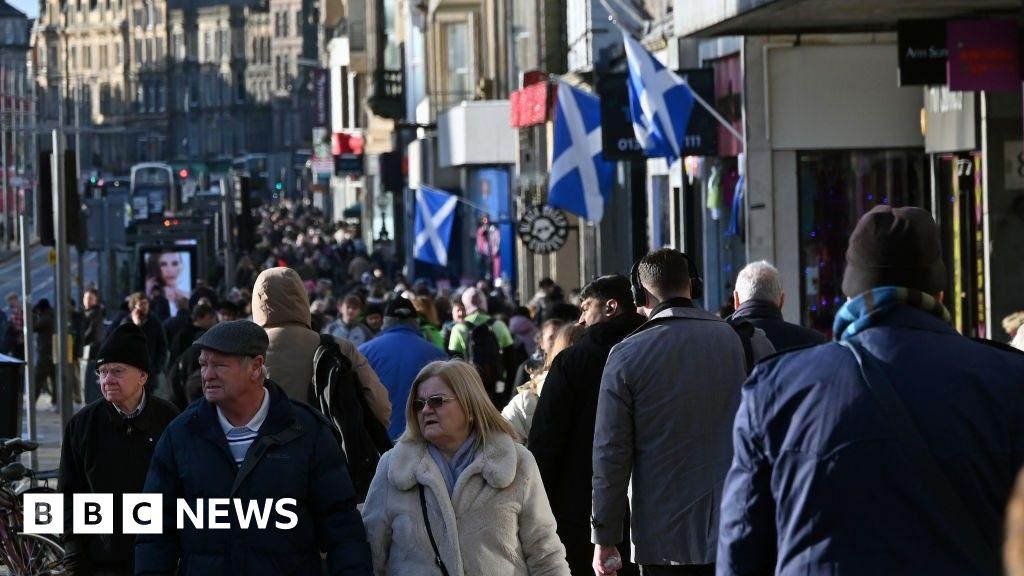Travel
Kirk opposes scrapping free travel plan for asylum seekers

Published on 30 August 2024
7 minutes read
The Church of Scotland has opposed plans by the Scottish Government to scrap the commitment to a free bus travel pilot scheme for people seeking asylum.
A joint letter signed by more than 50 refugee and faith-based organisations as well as public bodies across Scotland called on the First Minister to restore access to public transport to those that have been denied it.
The letter called the news ‘devastating’, stating that the scheme was for some ‘a last ray of hope under such difficult and hostile policies.’
“This decision also represents a lost opportunity to continue leading the way and setting an example of innovation for other home nations,” the letter reads.
The pilot expansion of the scheme had been announced in October after a campaign backed by the Scottish Religious Leaders Forum sought the Scottish Government to invest £2 million to extend the free bus travel scheme to asylum seekers and refugees.
However, this month the Scottish Government announced it would be discontinuing the pilot.
The letter noted that the scheme enabled access to appropriate food, travel to language-learning opportunities, as well as important appointments with doctors, schools and solicitors among other things.
There are also concerns it will obstruct those seeking asylum from attending worship services and connecting with their faith community.
“Asylum seeking families and individuals are struggling to afford food, buy appropriate clothing, cover daily essentials, and public transport costs,” the letter states.
“This abject poverty has an inevitable negative impact and contributes to social isolation, poor mental and physical health, lack of opportunity, lack of integration, vulnerability to trafficking and exploitation and compounds the trauma already experienced.
“It furthers child poverty as children do not have access to the same services and opportunities as other children in Scotland which can leave them feeling isolated and cut off from services.”
The letter continues, stating the consequences of the situation ‘will only become more severe in the coming months and years as more and more people are held without choice in contingency and dispersal accommodation outside of major cities.’
“Now that the pilot has been withdrawn, we need a commitment and a comprehensive roadmap to the restoration of public transport access to those who have been denied it.”
Read the letter in full:
Dear First Minister,
As frontline refugee support organisations and public bodies across Scotland that provide advice, support and advocacy to people seeking asylum, we write to you regarding the Scottish Government decision to scrap the commitment to a free bus travel pilot scheme for people seeking asylum.
This news comes as a shock to all of us who have tirelessly provided information and campaigned to make this possible since December 2021 and it will have a significant negative impact on people seeking asylum in Scotland. For some, it was a last ray of hope under such difficult and hostile policies. This decision also represents a lost opportunity to continue leading the way and setting an example of innovation for other home nations.
We feel it is important to highlight that the timing of the announcement, taking place on the day of the launch of the New Scots Strategy and Delivery Plan, gives very mixed messages to those in the asylum system regarding the Scottish Government’s commitment to welcoming people seeking safety in Scotland. It is devastating to receive this news when we and our members are joining the celebratory launch of the strategy where transport is a key element.
Transport is foundational to the health of our communities and people in the asylum system are part of those communities from the first day they arrive – as the New Scots Strategy emphasises.
We also share concerns that, given the recent far right movement and threats of violence, withdrawing this crucial support from some of our most marginalised communities will increase social isolation and do nothing to support community cohesion at a time when it is needed more than ever.
Impact
The effects of being denied access to transport do not go away if not addressed and are instead absorbed to intolerable degrees by people trying to rebuild their lives after persecution. The Home Office continually refuses people in the asylum system the basic tools to integrate into local communities – not just to find support and relief but also to offer it. Especially for the increasing numbers of people being sent on a no-choice basis to accommodation outside of Glasgow, public transport is possibly the single most effective tool we have to ensure all other needs can be met and is one of the most efficient mechanisms for rights restoration and integration that exists.
It keeps people active doing things they love and building networks of support that they draw from and contribute to. It enables access to appropriate food, travel to language-learning opportunities, as well as important appointments with doctors, schools and solicitors. It enables volunteering, and permits guardians to accompany children to school, activities and medical appointments. It enables the third sector to assist more effectively, pooling resources and covering more ground. Members of established local communities across
Scotland alongside the third sector (to the varying extent it exists in communities across Scotland) will continue to act in solidarity with community members in the asylum system because the wellbeing of those most vulnerable is the wellbeing of Scotland as a whole.
In this decision, the Scottish Government is abandoning them too because their efforts will not be enough and the longer people are denied what they need to live, the more members of our communities we will lose to despair. These are community members coming from countries like Syria, Eritrea, Sudan, Somalia, and Afghanistan – the vast majority of whom receive positive asylum decisions but not before their mental health is decimated by being rendered immobile for an indefinite period of time (usually many months, sometimes years).
“Treat us as human beings, not like robots.” MIN Voices member
“The cancellation of the bus pass really breaks my heart, and it is a big disappointment for me from the Scottish Government by increasing my mental health”.
Poverty
People in the asylum process cannot work, cannot access public funds and some live on as little as £1.36 per day. Public transport for those in enforced destitution is not a ‘nice-to-have offering for people who are having a hard time’ – it is a vital lifeline for Scotland’s communities. Transport is a key element for communication and integration.
Asylum seeking families and individuals are struggling to afford food, buy appropriate clothing, cover daily essentials, and public transport costs. This abject poverty has an inevitable negative impact and contributes to social isolation, poor mental and physical health, lack of opportunity, lack of integration, vulnerability to trafficking and exploitation and compounds the trauma already experienced. It furthers child poverty as children do not have access to the same services and opportunities as other children in Scotland which can leave them feeling isolated and cut off from services.
Our Ask
After agreeing to a national pilot, the Scottish Government has now said that we are, once again, on our own and that community and affinity groups, neighbours, friends and the third sector will be left to cobble together what we can to stem the tide of despair and it will not be enough. Removing access to mobility makes people vulnerable who otherwise have enormous potential to care for our communities and themselves.
The impact of this decision is incalculable after months and years of hard work to restore this right of movement. If people in the asylum system in Glasgow, with a wide ecosystem of support established over decades, need this desperately then it is clear that the need for transport for those outside the city is dire. The consequences of this situation will only become more severe in the coming months and years as more and more people are held without choice in contingency and dispersal accommodation outside of major cities.
Now that the pilot has been withdrawn, we need a commitment and a comprehensive roadmap to the restoration of public transport access to those who have been denied it.
As signatories, we are seeking answers to the following:
1. Is the Scottish Government still committed to providing free bus travel for people seeking asylum in Scotland and, if so, how does it plan to deliver it?
2. What consultation took place with stakeholders before the decision to cancel the national pilot and what are the concrete reasons which informed this decision?
3. What support is available to third sector organisations and local authorities to provide support with transport costs for people seeking asylum following the cancellation of the pilot?
4. Are there any other actions in the New Scots Refugee Integration Strategy Delivery Plan that will not be able to proceed for this financial year?










